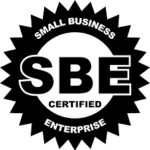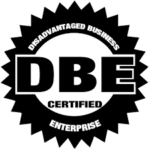In 2020, I wrote an article entitled “Why Charleston, South Carolina is a Strategic location for Career Growth?”. Since writing that article, so much has changed that supports this premise. The Charleston Regional Development Alliance (CRDA) notes that the civilian labor force expanded from 346,293 in 2013 to 425,334 in 2023, marking a 22.8% increase. Employment rose by 27.6% during the same period, from 325,009 to 414,588. Projections for 2025 estimate that the labor force will reach 435,500 people, with 425,050 employed individuals.
The unemployment rate decreased from 6.1% in 2013 to 2.5% in 2023. Although the unemployment rate is forecasted at 2.4% for 2024, in October 2024, Charleston County’s unemployment rate stood at 4.0%, up from 3.7% in the previous month and 2.7% in October 2023.
These figures highlight Charleston’s dynamic labor market, characterized by significant employment growth and a diverse industrial base. It is for this reason that I started the Saulsberry Group.
Allow me to highlight some of the opportunities for small businesses in 2025:
1. Navigate Regulatory Compliance
With a new administration coming into office, ongoing education and updates are needed on federal, state, and local regulations. Navigating regulatory requirements remains a significant concern for small businesses. In South Carolina, small businesses constitute 99.4% of all businesses, employing 42.2% of the workforce. Staying compliant with evolving regulations is crucial for these enterprises.
Strategically identifying regulatory changes to understand how to adjust processes, data capture, and reporting within businesses can give a small business a planned approach to compliance. For example, implementing compliance software to track legal requirements and deadlines can help. Small businesses may remain compliant to operate, but having a plan to do so helps business owners pay to become compliant as funds become available. As another example, offering training on labor laws and tax compliance tailored to South Carolina businesses can provide businesses with insights that help them strategically implement sustainable changes.
2. Adapt to Economic Conditions
In 2025, small businesses will need financial strategies that help them optimize cash flow, create financial buffers, and secure funding. South Carolina’s economy is projected to expand in 2025, with steady growth anticipated across most industries. Although inflationary pressures remain a concern that could impact consumer spending and business operations, the Saulsberry Group can provide market analysis that gives small businesses data-driven insights into consumer trends and spending patterns. Based on these trends, businesses can get assistance with applications for low-interest loans or grants during economic downturns.
3. Mitigate Infrastructure Disruptions
Charleston’s surging population has implications for the local economy and housing market. The area reported 24,077 job openings as of September 2024, indicating economic growth but also potential strains on infrastructure and transportation systems. The bus line is being developed to efficiently connect talent to jobs, but this is just the beginning of the transportation improvement needed in Charleston.
Businesses that want to relocate to Charleston will need location strategies. They will need guidance on optimal site selection or temporary relocations during construction. They will also need help identifying site locations that are easily accessible to public transportation. To retain businesses, a marketing strategy needs to be created to keep businesses and customers during infrastructure-related challenges. For example, there could be collaboration with local authorities to address logistical concerns like access during road closures.
4. Address Workforce Challenges
Small businesses accounted for 14,969 openings and 11,133 closings between March 2020 and March 2021, reflecting a net increase in establishments. However, attracting and retaining qualified employees remains a significant concern, especially in a competitive labor market. The Charleston County Strategic Plan emphasizes the importance of workforce development to meet the needs of local businesses.
Here again, recruitment support can be provided by creating competitive hiring strategies and employee retention plans. Additionally, training programs can be created to create professional development programs to upskill current staff.
For example: Implement benefits programs or flexible work arrangements to attract talent despite Charleston’s high living costs. One tactic recently employed is the establishment of a Cristo Rey private high school in North Charleston in 2026. Through its Work Study program, small businesses can help develop talent for the jobs they will need while students are still in high school.
The education they received throughout the week will be practically developed each Friday as students go into businesses to apply what they are learning. Once they graduate from Cristo Rey, many of these students will be better prepared for their next educational step that will make them sought after talent for jobs in Charleston.
5. Manage Quality of Life and Costs
As Charleston continues to grow, rising living costs may pose challenges for small business owners and their employees, potentially affecting employee retention and operational costs. Charleston’s housing market in 2025 is expected to experience moderate growth in home prices, a gradual increase in inventory, and slightly lower mortgage rates. These factors contribute to the cost of living, which can affect employee retention and operational costs for small businesses.
Strategically, operational efficiency can be achieved by identifying cost-saving opportunities to manage rising expenses. Community partnerships can be formed with organizations like Metanoia to address workforce housing needs as they provide low income housing in an effort to avoid gentrification in North Charleston. Businesses can also be a driving force to negotiate for more affordable housing with home builders and landlords as they bring talent into Charleston.
Saulsberry Group Strategies
The Saulsberry Group is here in Charleston to create a legacy of prosperity and global success by empowering business owners through strategic transformation. As we work with businesses to develop their innovative, strategic plans we are creating the connective tissue needed to connected businesses at an operational level to be of benefit to one another.
Imagine a Charleston where we strategically create a business climate that fosters economic growth, attracts the best talent, and encourages businesses to establish their headquarters in our city. We are well on our way through collaborative efforts like the One Region Strategy. Collaboration is increasing as collaborate through local chambers of commerce and other company and talent networking groups.
Charleston has all the right ingredients to shake the reputation of being a small market with a specialized industry focus in Health Care and Social Assistance (15.8% of total employment), Retail Trade (10.7%), and Accommodation and Food Services (13.4%). Small businesses continue to grow in other areas adding more variety to the Charleston market. As we focus on the important goals of our small businesses, let’s also strategically connect and empower the entire Charleston market to thrive.
Let us help you develop your strategy in any of these areas.



